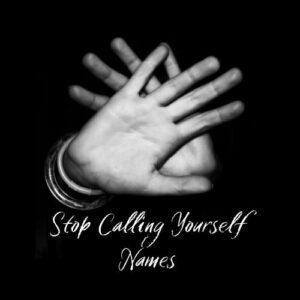Defensiveness is not a problem. It’s a solution – to our perception of threat.
We feel and act defensively when we are confronted with parts of ourselves we are afraid to examine or want to hide, even from ourselves.
Easier said than done, right?!
“Defense is the first act of war,” Byron Katie
We all know what it’s like to get defensive, but it can be hard to make sense of our reactions. Though not always easy to uncover, when we react defensively there’s usually a part of us (whether conscious or unconscious) that believes the other person could be right. This possibility threatens our self-perception and so we instinctively defend against it – not only to the other person but within ourselves, effectively blocking us from our own self-awareness.
We feel and act defensively when we are confronted with parts of ourselves we are afraid to examine or want to hide, even from ourselves.
In other words, we get defensive when there’s something we’re rejecting in ourselves. Rejection can activate shame – whether we’re being rejected by others or by ourselves – so the key is to admit and accept whatever we’re rejecting.
The antidote to defensiveness is a willingness to look for the part of ourselves we don’t want to see and own it. Paradoxically, defensiveness will evaporate if we are willing to see ourselves with both honesty and compassion. One of my teachers says that if you look closely enough, you can find a grain of truth in every accusation. Once you can find this grain and accept the flaws in ourselves, we realize there’s nothing to defend.
Easier said than done, right?!
One way to see this objectively is to imagine someone accusing you of having blue hair (assuming you don’t). You’ll notice the absence of that urge to defend yourself because you already know you don’t have blue hair so there’s nothing to defend. You might wonder if the other person has visual problems or something else is going on with them, but it’s unlikely you would become angry and get in a heated argument about your hair. Now if you do have blue hair, the accusation would have little effect outside stating the obvious.
“Defense is the first act of war,” Byron Katie
Imagine being on the receiving end of the following accusations. Notice what happens to any feeling of defensiveness when met with the corresponding response.
You’re so fake!
I can see that; sometimes I do pretend and I don’t have to make that mean anything bad about me.
You don’t ever listen.
It’s true I don’t always listen. I wish I was a better listener, but sometimes I miss the meaning or I’m not paying attention.
You only care about yourself.
There are definitely times I don’t show care the way I intend; probably more than I realize and sometimes I can be selfish.
As you can see, if you want to be less defensive then find the kernel of truth in every accusation. It’s always there if you’re brave enough to look. Humility is the way out of defense.
Pro Tip: If someone is accusing you of something, see if you can look inside and ask yourself where they could be right. If you can’t find it, then ask yourself why it bothers you. Each time you come up with an answer, ask again, “So why does it bother me?” until you can find some clarity on your own reaction. This way you keep the focus (and control) within yourself and don’t undermine your power by engaging in a defensive position.



